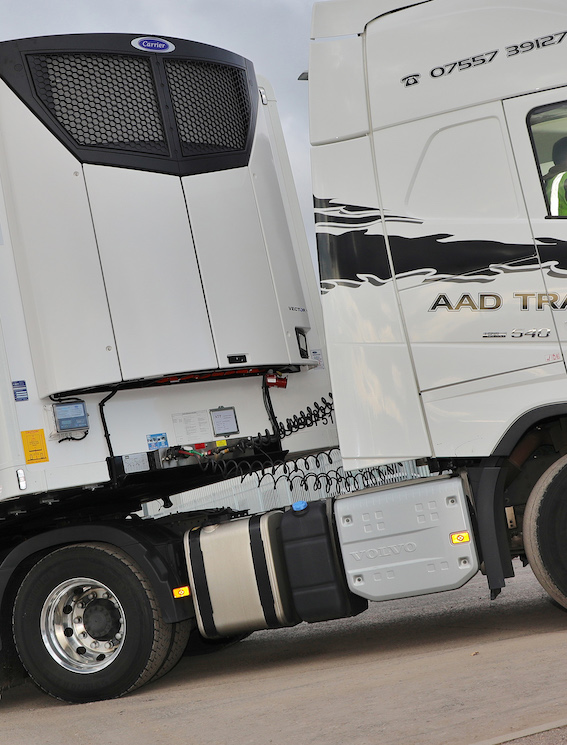Kirriemuir, Scotland: AAD Transport has taken delivery of four new Gray & Adams trailers with Carrier Transicold Vector HE 19 multi-temperature fridges.
Quiet operation and excellent sustainability credentials drove the specification, the second time the company has specified Carrier systems.
The trailers add to ADD’s 40 vehicles, now three quarters Carrier cooled. “We introduced our first Vector HE 19 MTs in 2019 and were excited to see how they performed,” said Alan Davie, managing director, AAD Transport.
“We’ve seen excellent improvements in efficiency and sustainability; and they are significantly quieter than any other unit we operate. The new units are incredibly driver friendly and were an instant hit for those spending nights away, with the quiet operation helping them get a much better night’s sleep, which is of course vitally important.”
The new Vector HE 19 MT units operate 3 dB(A) quieter than legacy Vector 1950 units. The system’s sustainability credentials result from a combination of Carrier Transicold’s electric technology and multi-speed engine design that can deliver up to 30% fuel savings when compared to the Vector 1950 unit, with a 40% increase in refrigeration capacity during pull-down.
When compared to the Vector 1950 unit, the Vector HE 19 MT unit is also 19% more efficient when plugged into the electrical grid on standby, meaning it can deliver reduced diesel, maintenance and electricity costs.
Another defining factor in AAD Transport’s decision for the Vector HE 19 MT unit was the maintenance from the local service partners Carrier Transicold East Scotland and Carrier Transicold South & Central Scotland.

“Carrier delivers unrivalled reliability and fantastic service support; it’s what has kept us coming back for the past six years,” Davie said. “In that time, we have built a really strong relationship with our local dealer, which is always available to support and delivers a great service.”
The new trailers are expected to stay in operation with the family-run haulage business for five years, clocking up around 100,000 miles per year. They will primarily transport fresh fruit and vegetables, alongside a range of frozen goods, both domestically and into mainland Europe.







